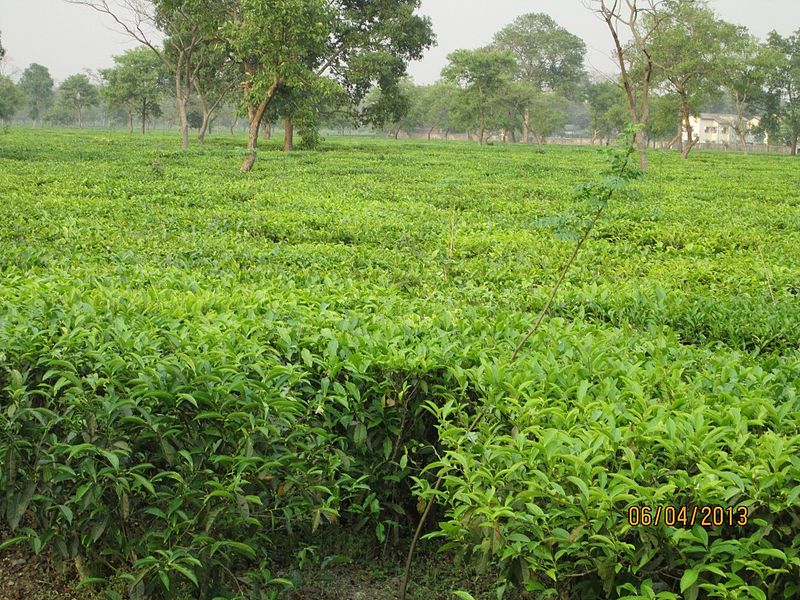
Greenpeace calls on the industry to save Indian tea from pesticides
The study exposes the presence of pesticides, considered highly and moderately hazardous by the World Health Organization (WHO), in leading national and international tea brands. The report also reveals the presence of other pesticides which have not been approved for use on tea crops in India.
“Indian tea is a national pride, and it should not be the one linked to toxic chemicals with serious environmental and health risks. All stakeholders in the tea industry should come forward and take steps to safeguard the reputation of our national drink.” said Neha Saigal, Senior Campaigner, Greenpeace India.
Between June 2013 and May 2014, Greenpeace India tested a sample of 49 branded packaged teas from 8 of the top 11 companies that dominate the branded tea market in India2 and which also export to countries like Russia, UK, US, UAE and Iran3.
These include the well-known brands of Hindustan Unilever Limited, Tata Global Beverages Limited, Wagh Bakri Tea, Goodricke Tea, Twinings, Golden Tips, Kho-Cha and Girnar.
The test results show the presence of pesticides classified both as Highly Hazardous (Class 1b) and Moderately Hazardous (Class II) according to WHO.
A large number of the samples tested positive for a cocktail of toxic pesticides. DDT was present in almost sixty-seven percent of the tea samples even though it is no longer registered for use in agriculture in India and was banned in such applications as long ago as 1989 (although it is still in use for control of disease carrying insects and may be present as a contaminant of other pesticides).
Many tea samples tested positive for Monocrotophos, a highly hazardous organophospohorous pesticide. It is to be noted that Food and Agriculture Organization (FAO) has urged developing countries to phase out these pesticides post the tragic incident last year where 23 school children died after eating school meal contaminated with monocrotophos. The cocktail also includes neoniconitoid insecticides such as imidacloprid, which are associated with reproductive or developmental impacts in animals, as well as affecting bees and other beneficial insects6.
Greenpeace said the study results indicate that the tea sector is caught in a pesticide treadmill and the only way out is ecological farming. Greenpeace India is calling on tea companies to support this change.
It said all the companies named in the report have been contacted and they have been interacting with them over the last several months. The copies of the test results were also shared.
Greenpeace also requested the companies to adopt a time-bound roadmap starting with pilots to phase out pesticides in their supply chains and replace them with ecological agriculture methods, such as Non-Pesticidal Management (NPM) 7.
Greenpeace urged them to disclose the names and locations of the plantations from where they source their tea and set targets for procuring ecological tea. "Further we urged them to liaise with relevant government bodies to develop support systems for small tea growers to adopt pesticide free farming," said Greenpeace.
Greenpeace said most of the companies have responded to them, including the two market leaders Unilever and Tata Global Beverages Limited (TGBL) . As an outcome of engagement with Greenpeace, Unilever recently announced plans to undertake a major scientific research including pilots to create a roadmap for non-pesticide management in tea production aiming at a holistic rejuvenation of the ecosystem. This is a positive step and Greenpeace will follow up and monitor their progress in the coming months.
"TGBL also released a statement. However it continues to follow the conventional method combining biological means with chemical control measures. We hope they will recognize the relevance of a new approach and will uphold and adopt a non-pesticide management approach which aims to completely phase out pesticides," said Saigal.
To highlight the urgency to move away from pesticides Greenpeace India has also placed seven billboards at the Bandra Worli Sea Link, each urging the tea companies to “Clean Chai Now”. Activists have climbed these billboards and they will descend only once the tea companies commit to phase out pesticides from tea.
“We urge all tea companies to take steps to move the tea sector away from this pesticide treadmill and clean our chai from crop to cup. The tea companies need to support adoption of ecological agriculture approaches like Non Pesticidal Management (NPM) for the sustained growth of the industry as well as safety of the consumers. NPM is already being practiced successfully in the country; it is both economically and ecologically viable,” Saigal added further.
Support Our Journalism
We cannot do without you.. your contribution supports unbiased journalism
IBNS is not driven by any ism- not wokeism, not racism, not skewed secularism, not hyper right-wing or left liberal ideals, nor by any hardline religious beliefs or hyper nationalism. We want to serve you good old objective news, as they are. We do not judge or preach. We let people decide for themselves. We only try to present factual and well-sourced news.







